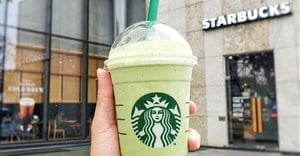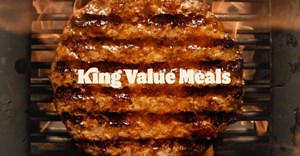Trending




 Sabre EMEA 2024 Awards: Razor PR, Retroviral top SA agenciesDanette Breitenbach
Sabre EMEA 2024 Awards: Razor PR, Retroviral top SA agenciesDanette Breitenbach
Elections 2024
Jobs
- Show Producer Johannesburg
- Fabric Weaving/Looming QC Technician Ga-Rankuwa
- Receptionist/Administrator Intern Edenvale
- Capital Equipment Sales Representative Cape Town
- Sales Consultant Bushbuckridge
- Technical Sales Representative Johannesburg
- Packaging Design Lead Cape Town
- Graphic Design Berea
- Senior Graphic/Digital Designer Cape Town
- Copywriter Cape Town
The rise of cancel culture

The brand started being threatened by the warriors of the internet a couple of weeks ago. The threat of being “cancelled” due to a controversial business decision of taking on newest investor, The Blackstone Group, gave me an inkling to keep a close eye on their response.
The ad geek in me also decided to look into the continuous trend of the cancel culture, the impact that it has on brands and how, in my opinion, communications professionals can try and reduce the risk. I need to state that I am more of a straight-up espresso guy and I am in no way skilled to endorse Oatly and its health benefits…
What is cancel culture?
If you spend any time on social media, it is likely that you have seen the threat of young consumers throwing warnings that they will takedown brands, public figures and even historical events and holidays after they have contradicted consumers beliefs. Think Kanya West in 2018 after his ignorant remarks of slavery, Victoria’s Secret public announcement of not supporting and featuring transgender models despite its sister company, Pink, using the LGBQT+ community for content and the recent, racist hair ad's in South Africa by TRESemmé forcing major retailers to pull its products off the shelves.
The rise of cancel culture encapsulates what it means to be on social media: Providing everyone with a valid voice and giving them the right to hold entities and people accountable.
Do these micro-revolutions impact brands?
Critics will say that cancel culture doesn’t exist. Most tend to look at the “big guns” who are easily able to come out of short spurts of crisis due to factors such as financial backing, being a consumer necessity or simply a trend. The likes of Amazon, Whatsapp, J.K Rowling and even pineapple have fallen victims in the past of being #cancelled.
Perhaps cancel culture will phase out, but for now, it’s a thing where appeals for rejection happen weekly. To me, any negative impact on a brand is detrimental. Be it time and resources needed to rectify the problem, an immediate sales effect (Facebook has lost Billions of ad revenue due to its handling of hate speech and misinformation) or a simply a bad mark on your brand's credibility.
Is the answer to play it safe?
The bigger the audience, the more closely you will be under their microscope. Oatly, probably wouldn’t have had half of its success if they had to try and fight the big dairy conglomerates with traditional “safe” communications. The same could be said for Burger King, Greggs and Netflix. Instead of being complacent in fear rather:
Stay true
If you are weighing in on sensitive topics like race, sex, politics or religion check whether it is authentic or whether there is a hidden agenda for financial gain. The latter will reach instant backlash whereas focusing on the matter will only get support.
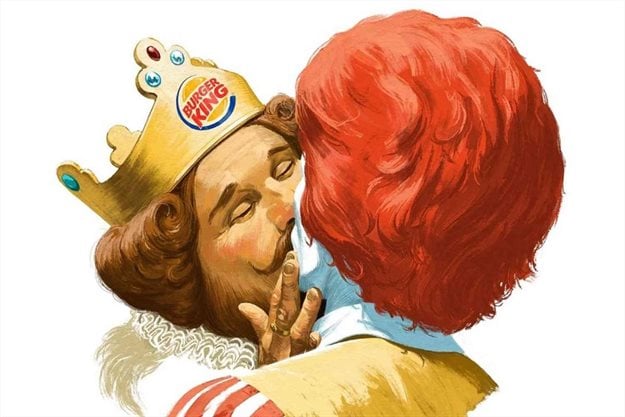
The King and Ronald McDonald kiss in a new ad to celebrate Helsinki Pride is a spot-on example of supporting a cause.
Don’t rely on others to save you
Brand partnerships and influencers are only good when things are going well. Take special care when going into a partnership, audit past affiliations and partner with people and brands who share the same values.
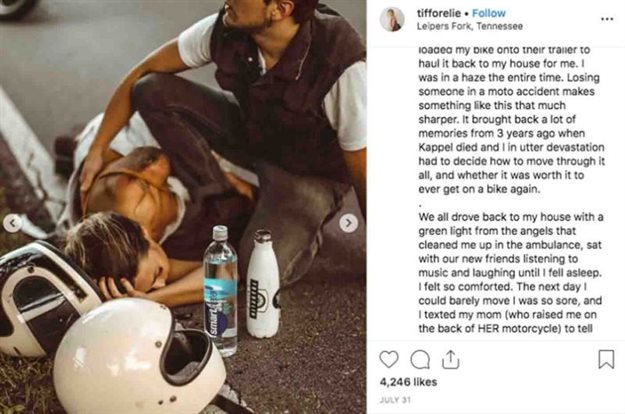
In July 2019, an Instagram influencer, Tiffany Mitchell, uploaded a series of photographs which showed her lying on the ground after falling off her motorcycle. It was not only bizarre that the influencer glamourised an accident but also carefully art directed the placement of Smartwater.
Stand up for faults
Acknowledging fault with a genuine human apology showcasing how issues are being rectified immediately with full transparency is the only way to prove that you are taking mistakes seriously. The internet warriors are human after all and will carefully forgive a genuine apology opposed to pure ignorance.
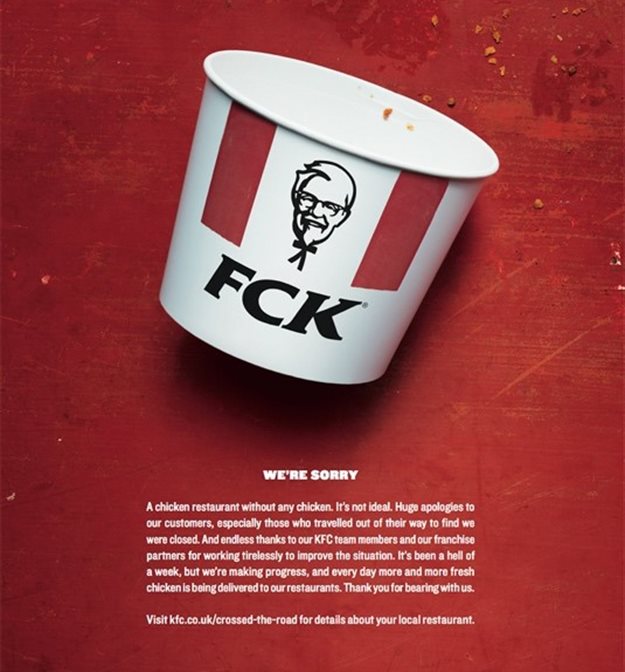
In 2018, KFC responded to a U.K. Chicken Shortage Scandal with a timely, simple piece of creative: “FCK, We’re sorry”.
If brands use common sense they should be able to navigate the great online world. Mistakes happen, learn from it and better equip yourself for the future.
With regards to Oatly, the business is still defending its decision to receive investment from Blackstone. The case: “We need to speak a language that the capital markets understand.”










